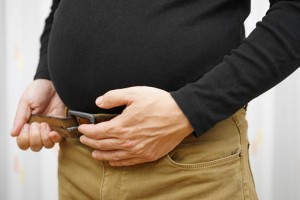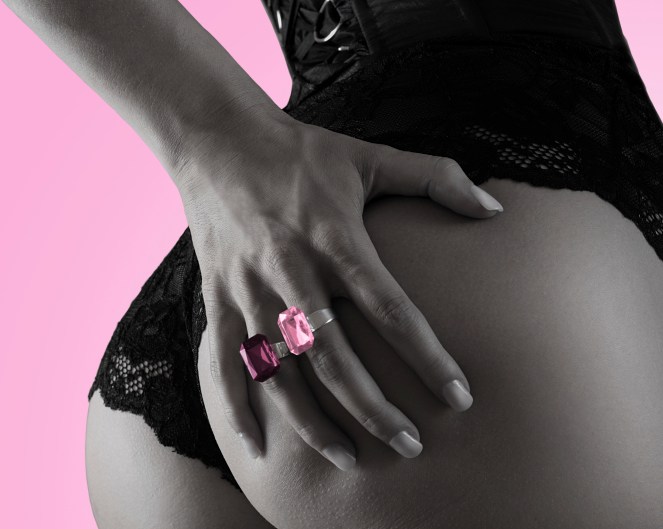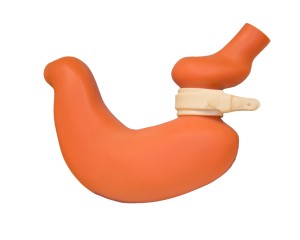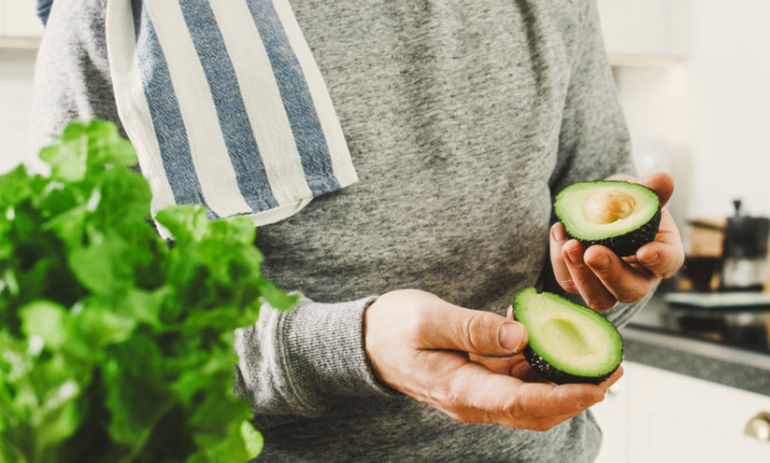How to feel less full after a big meal
 Whenever a special occasion comes up, we are all guilty of overindulging in a tasty meal from time to time. It can become rather uncomfortable when we have a big meal, though. Bloating, fatigue, cramps, nausea, indigestion, and acid reflux are all associated with diets that involve large amounts of food in one sitting.
Whenever a special occasion comes up, we are all guilty of overindulging in a tasty meal from time to time. It can become rather uncomfortable when we have a big meal, though. Bloating, fatigue, cramps, nausea, indigestion, and acid reflux are all associated with diets that involve large amounts of food in one sitting.
Simple home remedies to feel less full and more comfortable after a big meal
Hydrating the right way
You will often hear people say that they like to have wine with a nice meal, but research points to the fact that alcohol slows digestion. In fact, recent studies suggest it reduces digestion by as much as 50 percent.
Doctors and dieticians suggest that water is the most appropriate beverage when you are eating a big meal. It helps you digest your food by breaking it down so that your body can absorb the nutrients. It will also soften stools, preventing constipation that can often be associated with mixing a lot of different foods.
Hydration is considered a healthy idea before, during, and after any meal, no matter how big or small the portions are.
Adding some heat to your stomach
Consider placing a hot water bottle on your stomach 10 minutes after a meal. Something that has light pressure is best. Lying down and holding the water bottle on your stomach can soothe the discomfort of fullness and also help digestion.
The role of exercise
The popular theory has always been that a brisk walk immediately following a huge meal will help you drop some of the calories you put on, help you feel less bloated, and make you more comfortable. In reality, scientists say when you walk at a brisk pace with a full stomach, your heart is forced to work at twice its rate, so you should actually wait 45 minutes to an hour after the meal to do anything really physical. A study at Brigham and Women’s Hospital in Boston indicates that heavy meals increase the risk of heart attack. Having said this, you can benefit from a vigorous walk before the meal. This stimulates your metabolism and it will decrease the amount of sugars and fats that build in your blood after you eat. Another option is to engage in gentle exercise after a big meal. Something light that does not make your heart work too hard, like a leisurely five-minute walk. Anything gentle for up to 20 minutes is suggested.
Tea and peppermint
Having tea after a big meal may sometimes feel like the last thing you want to do. However, Beth McDonald, an Integrative and Health Nutritionist, says that sipping on some chicory root tea after a big meal can help with your mood and digestion. A caffeine-free option, it helps to promote the movement of food through your digestive tract. For those that do not like the taste of coffee-like teas, try something like chamomile, which still has a soothing and calming effect on your stomach.
Another helpful remedy is peppermint. Having a small peppermint candy after a big meal has several positive properties, like naturally relieving gas, nausea, and indigestion. Peppermint opens up the channel between your stomach and esophagus, allowing stomach acid to flow and help digest your food. If you have no peppermint candy, peppermint tea or gum are good alternatives.
Fruits and vegetables
Food has to be transformed into smaller particles of nutrients before it can be absorbed into the blood and make its way to important cells in the body. Digestion breaks down these small particles of food to nourish cells and give us energy. This process is difficult when you combine certain types of food. For instance, carbohydrates and proteins digest differently, so eating large amounts together will make it hard for your system to digest. Some nutritionists believe it takes about two hours to digest starches and four hours to digest proteins. Starches and proteins together…up to as much as 13 hours.
Fruits and vegetables don’t create as many digestive problems for people. A lot of fruits and vegetables have high water content. Apples, pears, peaches, carrots, beets, sweet potatoes, and zucchini, for example, are easily digestible. Eating more fruits and vegetables during a big meal will help you feel not as full because your body will be that much quicker at processing the food.
Chewing your food
There is a saying, “my eyes are bigger than my stomach”. This means that you see a lot of food you want, but you likely don’t have the room in your tummy to fit it all in. When your family or friends prepare a big feast, the temptation can be too much, so you dive in and try everything anyway. Whatever you do…chew, chew, chew. The more you chew, the more digestive acids you are producing in your body. Studies show that eating large amounts of food and not chewing properly leads to bloating, stomach pain, and constipation.
With these few steps, treating yourself to a big meal on those special occasions can be more enjoyable. The emphasis is on “special occasions,” since we are reminded that we don’t want our diets to consist of big meals all the time. Overeating on a regular basis, of course, can lead to a whole host of health complications.
Add medication if needed
Some over-the-counter antacid medications can be helpful for reducing the fullness and bloating you feel after a big meal. Follow the instructions on the label and do not take more than the suggested dose.
Related Reading:
Stomach pain after eating – causes and home remedies
Nothing is worse than enjoying a meal that is immediately followed up by stomach pains. Stomach pains after eating can be a nuisance, especially if you don’t know the underlying cause…Continue Reading
Stomach gurgling causes, symptoms, and home remedies
Stomach gurgling is a sound that can spring up at any moment – sometimes causing embarrassment. Stomach gurgling is often associated with digestion, but sometimes they could indicate something more serious…Continue Reading
-
Why Hypnosis for Weight Loss?
Do You: Yo Yo diet? Through hypnosis yo
-
The Truth Behind Hoodia Weight Loss Pills
Before you begin your search for Hoodia weight loss pills you should k
-
Butter Is NOT Back (And Other Truths About Saturated Fat)
-
The Need to Eat Organic Produce
A common question I get from my patients ‘is it worth the mon
-
Weight Loss Plans For Effective Weight Loss
Lots of people are looking for the perfect weight loss help that would
-
The Pill Meal
There are hundreds of medications out there for blood pressure, h
- DON'T MISS
- Healthy Lifestyle Suggestions You Can Benefit From
- Childhood Obesity Prevention - How to Prevent Obesity in Your Child
- How Do I Get Free At Home Weight Loss?
- Your Thyroid And Weight Loss
- Loosing Weight Fast For Teens - Esiest Way To Lose Weight Fast.
- Weight Loss Menu Plans Intended For Losing That Added 10 Lbs
- Can Skinny People Become Hunks?
- Really should You Get Lipo When you are Slender?
- Weight Loss Management Through Nutritional Supplements
- Healthy Eating Diet Advice - Avoid Temptation




